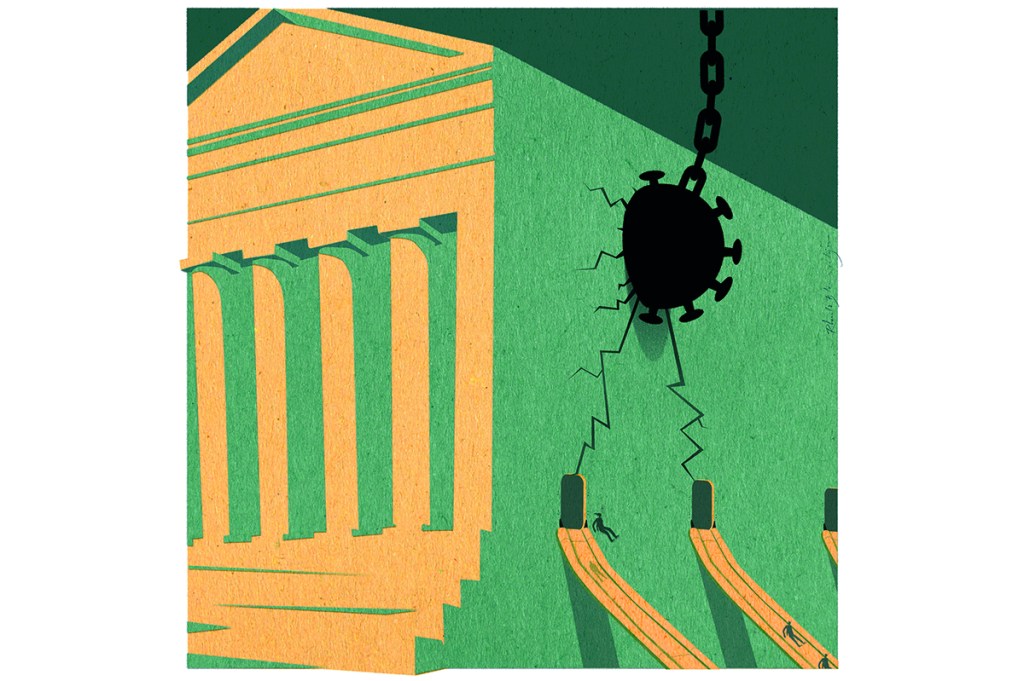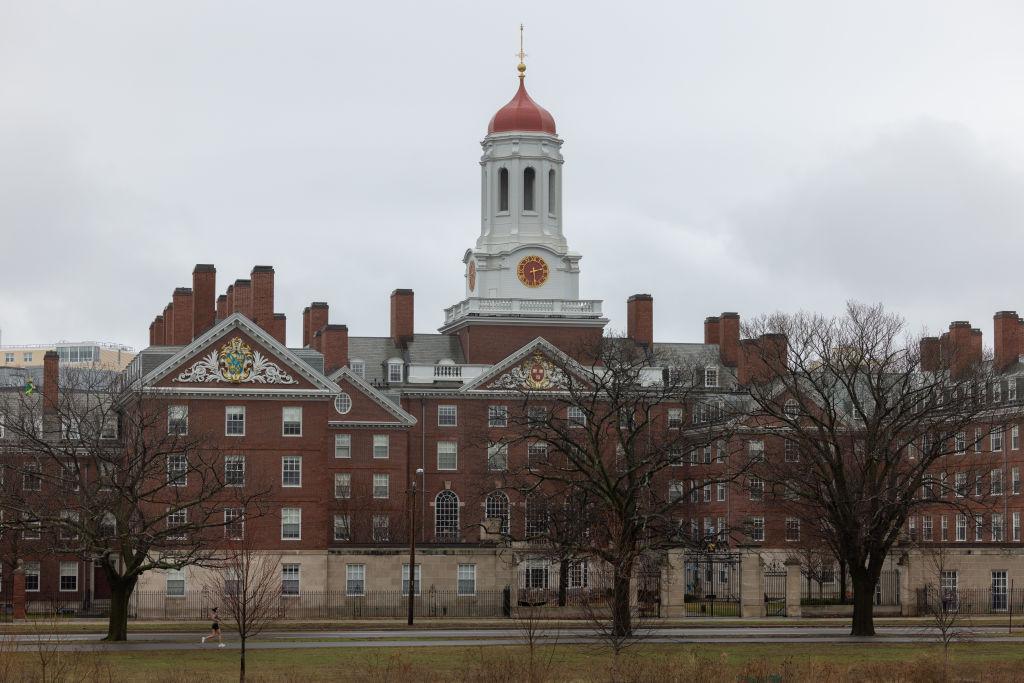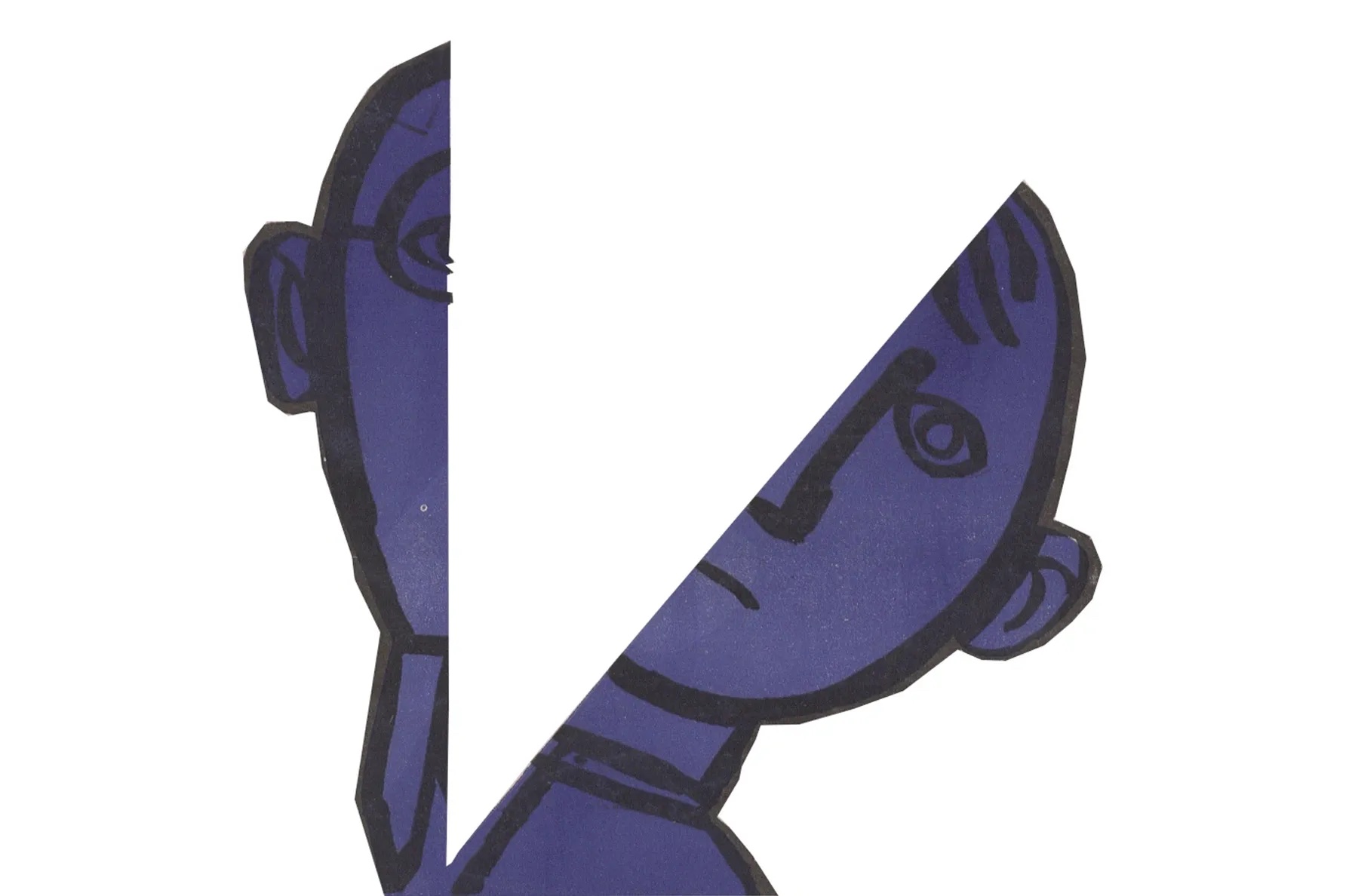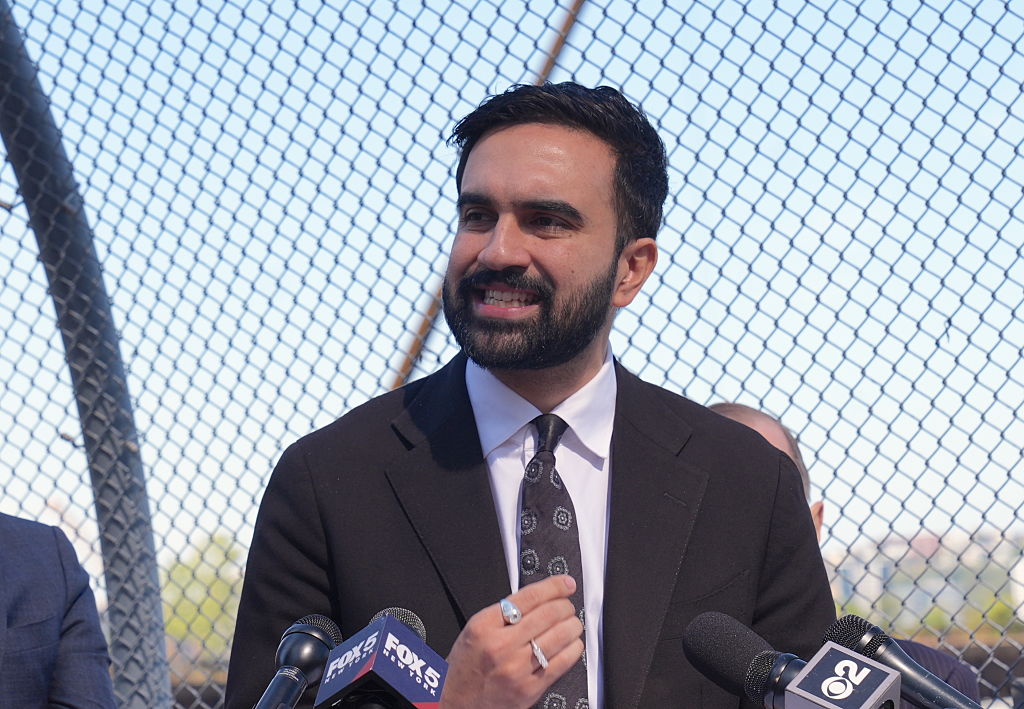In the spring of 2020, the pandemic catalyzed a startling personal revelation. As a begrudging student of Zoom University, I came to the realization that a college degree might not be worth it.
Pre-pandemic Rikki was a dutiful, head-down student at New York University with a 4.0 GPA and her eyes set on law school. But when the world locked down in the middle of my sophomore year and my university still demanded full tuition for virtual classes, I began questioning everything.
Although they certainly made a valiant effort at remote teaching, most of my professors proved too technologically inept to coerce twenty-five despondent teens to attend 8 a.m. Zoom lectures about medieval feudalism. Most of my fellow students didn’t bother showing up; the virtual classroom experience soon lost its luster.
Simultaneously, lockdown-induced idleness made me think deeply and critically about the achievement loop I was caught up in. With time to think, I realized I wasn’t truly passionate about the practical and lucrative legal career path I had planned. I also decided I wanted to chase a stifled dream and try my hand at journalism.
So I did. I’ve since withdrawn from college to pursue a career that I love, learning through experience rather than classroom instruction. And while I may one day decide to finish my degree, I’m not alone in realizing that an overpriced diploma might not be worthwhile in the post-pandemic age.
Today, countless young Americans are questioning the utility of higher education. Since the outbreak of Covid-19, higher education enrollment has tanked, with American colleges and universities experiencing their largest two-year enrollment decline in half a century. Many students like me took a leave of absence in the hope that their college experience might be restored in the coming semesters.
But we would soon be sorely disappointed. Even in 2022, college students are still subjected to draconian pandemic measures at the whims of administrators — everything from strict quarantines, mask mandates, vaccine requirements and social distancing to a general prohibition on healthy, age-appropriate socialization. All that despite young people’s astronomically small risk of adverse Covid outcomes.
And it’s not just fellow dropouts taking notice. According to a survey of Generation Z teens commissioned by VICE and the Education Credit Management Corporation, the percentage of American high school students who plan to pursue a four-year degree has dropped a staggering 20 points, from 71 percent in May 2020 to just 51 percent in January of this year. The polling also found that 62 percent of teens want to forge their own educational paths, and half believe they can be successful and meet their goals without a four-year degree. The bottom line: Gen Z is rethinking higher education entirely. And that will force the system to change.
Of course, financial stresses exacerbated by Covid-19 are at play; already unaffordable degrees are even more out of reach for many. Six in ten teens say they’re worried about how they will pay for college; 68 percent say the cost of tuition is an important factor in determining their educational path. Plus, their generation faces unprecedented tuition hikes far beyond the rate of inflation. Between 1980 and 2019, the average bill for a degree rose a staggering 169 percent.
As a result, half of high school students are concerned about graduating with student debt — and it’s no wonder. We’ve watched Millennials with impractical degrees crash and burn, saddled with insurmountable debt and limited career prospects. Today a staggering 44 million Americans are drowning in nearly $2 billion of outstanding student loan debt — that figure has doubled over the past decade alone, surpassing both credit-card and auto-loan debt.
As more activists and politicians agitate for student loan forgiveness, they’re sending a clear message to Gen Z: a fancy diploma doesn’t always justify digging yourself into a financial hole. In fact, over the forty-year period where tuition increased by 169 percent, wages for workers in their twenties ticked up by a meager 19 percent. Now that they know the downside better than their Millennial predecessors, why would today’s teens sign up for that uphill battle?
Members of Gen Z are also asking another crucial question: will college actually prepare me for my desired career? Unless you find yourself on a pre-law or pre-med track, there’s little talk of job readiness on campus.
Over the past few decades, increasingly bizarre courses, frivolous fields of study and entire academic departments steeped in abstract theory have sprung up across academia. As a result, many students have left campus with diplomas in fields like gender studies, which provide few career prospects outside academia itself. After four years of college, many graduates know more about postmodern theory than basic professionalism.
Forking out $6,000 for a course in feminist dance theory becomes a lot less appealing in a pandemic — and Gen Z has taken notice. Nine in ten high school students say higher education needs to better emphasize career preparedness. They say they want better preparation for multiple career paths, more clarity on what jobs are available and a wider understanding that getting a degree may be less important than actually getting a job.
Gen Zers know they are set to enter a job market that desperately needs them. Three in four teens say they’re aware of current worker shortages. They’ve seen the help-wanted signs and know employers are less likely than ever to turn them away if they don’t have a diploma to show.
But higher education isn’t just proving impractical and unaffordable to young Americans — it’s also increasingly politically alienating. We’re not as radical a generation as our squeakiest woke wheels may lead you to believe; 20 percent of Gen Z are registered Republicans and a further 42 percent are independents. For many young people, entering a woke echo chamber for four years just isn’t that appealing.
Students show up on campus to learn, explore and grapple with controversial ideas, but universities are providing anything but that. While 88 percent of current students say that schools should encourage respectful dialogue between those with differing opinions, 63 percent report that the climate on campus prevents people from saying what they believe. Why should young people sign up to sit on their hands and bite their tongues for four years?
It’s certainly sad news that an entire generation is losing faith in institutions of higher education. Many will miss out on rites of passage their predecessors were able to enjoy — from inspiring lectures and lively debates to social events and friendships.
Too many of the institutions charged with education have become drunk on their own power, charging students exorbitant fees for increasingly meaningless degrees. The fact that many young people are waking up to that fact is healthy and necessary.
Gen Z’s mass exodus from higher education is finally applying needed market pressure to the world of academia. It has even exposed a demand for entirely new institutions, like the University of Austin, which is promising students a true classical liberal education with a much-reduced tuition bill.
But most important of all, disillusion with academia has empowered young people to forge their own paths forward, to buck the status quo, and to break the prescribed achievement loop many have found themselves trapped in. Whether they’re waking up to the price tag, the politics, or the practicality of higher education, Gen Z is realizing that a stamp of approval from a fancy university isn’t the only path to success.
This article was originally published in The Spectator’s August 2022 World edition.

























